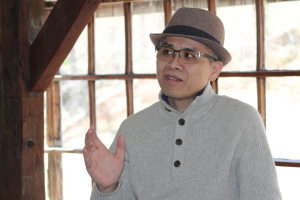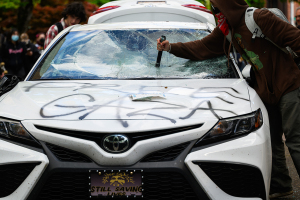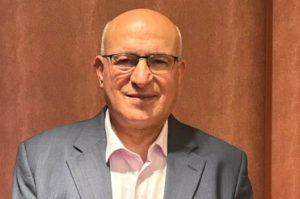OK, There Really is a Bible Belt
The Gallup organization has just released a major new research report that measures relative religiosity state by state, and the results are startling. There really is a Bible belt, and some regions of the country are remarkably secular.
The poll data is straightforward. Over 350,000 persons were interviewed and asked this question: "Is religion an important part of your daily life?"
The data reveal a wide disparity among the states. In Mississippi, 85% answered "yes," while in Vermont, only 42% did so. That is an incredible margin of difference.
According to the data, the most religious states include Mississippi (85%), Alabama (82%), South Carolina (80%), Tennessee (79%), Louisiana (78%), Arkansas (78%), Georgia (76%), North Carolina (76%), Oklahoma (75%), Kentucky (74%), and Texas (74%).
The states with the lowest responses were Connecticut (55%), Nevada (54%), Rhode Island (53%), Oregon (53%), Washington (52%), Alaska (51%), Massachusetts (48%), Maine (48%), New Hampshire (46%), and Vermont (42%).
As Frank Newport of Gallup explained:
Clearly, Southern states are populated by residents with relatively high religiosity, as are several other states in the middle of the country, stretching from Texas through Oklahoma to Kansas and the two Dakotas.
At the same time, states whose residents are least likely to report that religion is important tend to be concentrated in New England and the far West (with the exception of Utah). Additionally, levels of religiosity are lower in several Mid-Atlantic states.
Regionalism matters, and though some of the patterns may defy easy explanation, others confirm longstanding observations. The Pacific Northwest and the New England states really are far more secular than most other regions, and the South really is a Bible Belt.
Numerous theories are advanced in order to explain these disparities. New England certainly did not start as a secular experiment, but it entered the twentieth century already showing signs of deep secularization. The influence of liberal theology in the region, the aftermath of the Second Great Awakening, and the leading edge of urbanization and industrialization certainly contributed to the pattern.
The Pacific Northwest, by contrast, has been a consistently secular region throughout its history. Other regions and states have their own history and story.
The existence of the "Bible Belt" is not a myth. The Gallup map shows a swath of avid religiosity ranging from Texas to the Atlantic coast. Every state in this region is included in the pattern of highest responses, with the exception of Florida, which scored 65% - matching the national average.
What are we to make of this? Well, a closer look at the question Gallup asked reveals the limits of the data. The people Gallup interviewed were asked: "Is religion an important part of your daily life?" There was no definition of "religion" offered, and certainly no test of doctrinal understanding or commitment. The responses from the Bible Belt surely include those generated by cultural Christianity. In the South, being "raised right" includes knowing how you are supposed to respond to a question like that posed by Gallup.
Still, the radical difference between the 85% marked by Mississippi and the 42% of Vermont point to real and challenging distinctions in how we should conceive our Great Commission challenge in those states. In Mississippi, the challenge is to reach persons who think they are Christians with the reality of the genuine Gospel. In Vermont, reaching a secular population is the main challenge. Both represent important and vital Great Commission challenges.
There is much to see in this new Gallup report, and everyone from missiologists to marketers will be using the data. Political scientists will have their own interests, as will students of American religion. As for those committed to church ministry and the Great Commission - we see our national mission field in sharper view, state by state.
Those who understand the Gospel know that far deeper questions remain to be asked.




























